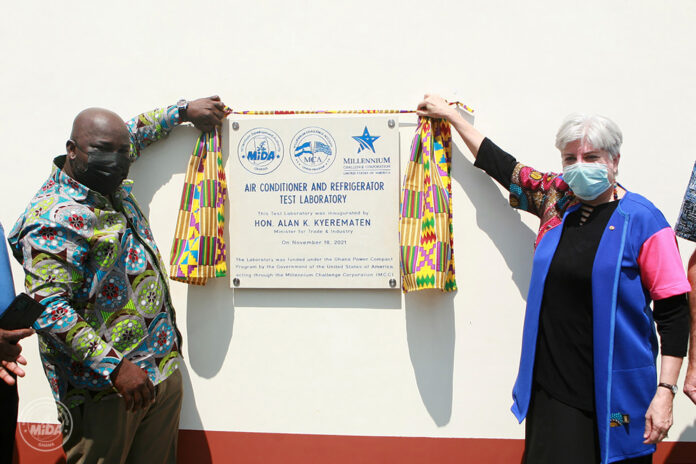
There is no doubt that the impacts of climate change are beginning to manifest on the entire globe and particularly on developing countries like Ghana that are relatively vulnerable.
Unless structures are carefully and systematically put in place to ensure resilience in development and reduce vulnerability, climate change and climate variability may pose serious challenges to national development.
Evidence abounds in Ghana that temperatures in all the ecological zones are rising, whereas rainfall levels and patterns have been generally reducing and increasingly becoming irregular.
The national economy stands to suffer from the impacts of climate change because it is dependent on climate-sensitive sectors such as agriculture, energy, forestry, and others.
Historical data for Ghana, from 1961 to the 2000s, clearly shows a progressive rise in temperature and decrease in mean annual rainfall in all the six agro-ecological zones in the country.
Climate change is manifested in Ghana through: (i) rising temperatures, (ii) declining rainfall totals and increased variability, (iii) rising sea levels, and (iv) high incidence of weather extremes and disasters. The average annual temperature has increased 1°C in the last 30 years.
Ghana’s vulnerability to climate change is in large part defined by its exposure to the various impacts with droughts, floods, and sea erosion as the main drivers. The most affected sectors in Ghana include the economic, social, and infrastructural groups.
In the economic sectors, agriculture, which is the largest employer within the Ghanaian economy, suffers the most from climate change. The distribution of rainfall is the single most important factor affecting agriculture. The increasing variability of rainfall increases the risk associated with farming as prediction becomes almost impossible.
The health and sanitation sectors have already been affected by climate change and will experience further stress in the future. Increased incidences of water, air, and food-borne diseases accompanying flooding, drought, heatwaves, and dry winds are just a few examples of issues affecting the health and safety of Ghanaians.
The climate change has impacted on infrastructure such as roads, dams, power distribution lines, homes, drains, and all structures that life revolves around. Disasters such as floods, rainstorms, and strong winds are becoming more frequent than before.
Governments, organisations, communities, individuals, among others, are adopting measures to minimise the impacts of climate change around the world.
In line with government’s fight against the negative impact of climate change in the country, the Millennium Development Authority (MiDA), through the U.S. Government’s Millennium Challenge Corporation (MCC), has supported the Ghana Standards Authority (GSA) with a $1.8 million Air Conditioner and Refrigerator Test Laboratory (Energy Efficiency Test Lab).
The facility, which is the first of its kind in West Africa, costing $1,886,981.14, was inaugurated on Thursday, November 18, 2021.
The test lab will augment the work of the Energy Commission in its mandate.
The state-of-the-art Air Conditioner and Refrigerator Testing Laboratory forms part of the Energy Efficiency and Demand Side Management (EEDSM) Project.
During the inauguration of the test facility, Hon. Michael Okyere Baafi, Deputy Minister for Trade and Industry, who represented the sector Minister, said that the project falls in line with government’s irrevocable response and commitment to climate change ideals within the sector.
The US Ambassador to Ghana, Stephanie Sullivan, while addressing stakeholders, noted that this laboratory will put Ghana in a leadership position, and will help enforce strong efficiency standards, reduce emissions, and save Ghanaians money.
“It will help ensure high energy-consuming electrical appliances meet the Energy Commission’s standards and will support Ghana’s National Appliance Standards and Labelling Systems Program,” she said.
In Ghana, the demand for air-conditioners and refrigerators are very high as a result of the increasing high temperatures. Almost every office, shop, school, home and even church is fitted with a cooling system.
The test facility will enable the country’s standards body carry out tests and ensure that all air conditioners and refrigerators imported into Ghana meet the Minimum Energy Performance Standard (MEPS) set out in the Energy Commission’s Energy Efficiency Regulations.
It has been equipped with a Balanced Ambient Room Calorimeter (BARC) Test Chamber for evaluation of the capacity and performance of Room Ambient Calorimeters (RACs), in accordance with the ISO 5151 Standards.
The facility has the initial capacity to test a minimum of 96 units of ACs and 48 units of refrigerators annually. However, the capacity of the testing facility is expected to increase over time.
Two fire-fighting systems have also been installed to detect and fight fire as well as a dedicated 500 KV transformer to power the facility and the testing equipment due to its high electricity intake.
The testing facility will play a major role in mitigating climate change by ensuring imported cooling appliances meet the energy efficiency standards. Air-conditioners fitted with inverters consume less electricity.
The GSA, through the Air Conditioner and Refrigerator Test Laboratory, will contribute immensely to mitigating the global climate change issue by ensuring standards and efficiency are adhered to. This will be done primarily by regulating the appliances that enter the country.














































